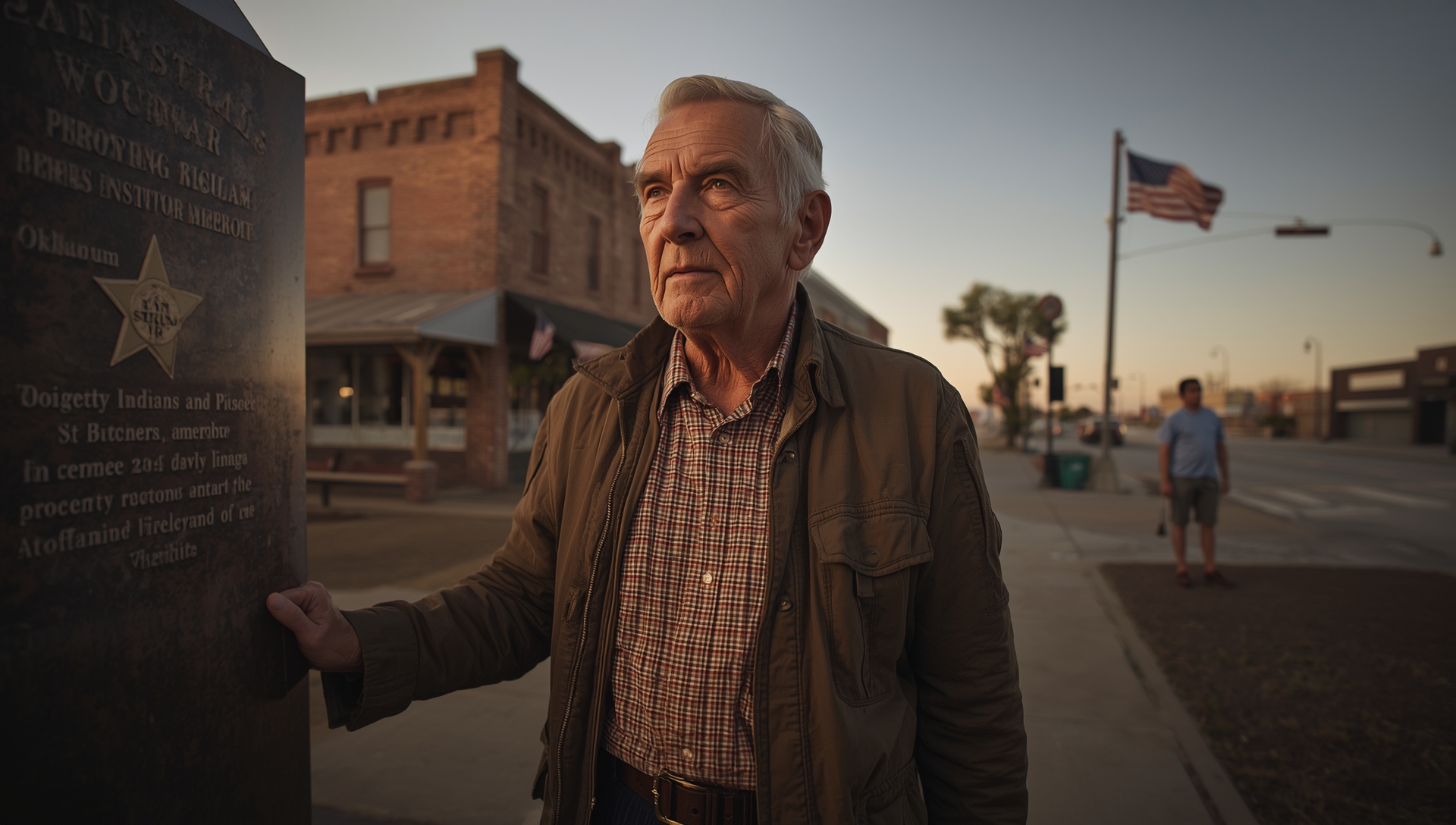Woodward Shoutouts
Archives
"The Untold Story of the Quiet Veteran Hero Living Next Door"
SIGN UP FOR OUR NEWSLETTER
I moved to Woodward in the fall of 1985, when I was 10, and I remember Mr. Carl “Silent” Harris living two doors down from my grandparents. He didn’t brag, rarely talked about himself, but folks around town whispered his name with respect. Carl was one of “those” people—quiet, unassuming, maybe even shy—but slowly, bits of his past came out, and what I learned changed how I see heroism.
Carl grew up just outside Woodward. He enlisted in the Army during World War II—not because he had to, but because it was the right thing to do. When he came back in 1945, his hands were tougher, his eyes quieter, and his walk… slower.
Nobody made a fuss. No banner on Main Street. Just Carl stepping off the train, shaking hands with the station clerk, and heading home to the same dirt road he left behind.
He took a job at a grain elevator. Fixed fences, mowed churchyards. Never married, but always checked in on Miss Eloise down the block. Never spoke in church, but always sat in the same pew.
One Sunday, I found him out by the old WWII Honor Roll Plaque near the Plains Indians and Pioneers Museum. He wasn’t looking for his own name. His fingers lingered over Fred S. Huff, Paul E. McLain, and John W. James—three names etched into the plaque, lost in the war, boys he might’ve known from school or football.
If stories like Carl’s remind you of someone in your own neighborhood, subscribe to WoodwardShoutouts.com. We’re sharing the real stories that matter—the quiet ones hiding in plain sight.
I once asked him if he knew Thomas R. Allen, a local Air Force pilot killed in Vietnam. “Yeah,” Carl said, nodding slowly. “That boy flew straight into the fire and never came back. But he lit the way for the rest of us.”
That was the most he ever said about the war. But the next week, he helped the local Boy Scouts repaint the fence around the Veterans Memorial. Didn’t say why.
Carl’s medals were tucked in a box under his bed. Bronze Star. Purple Heart. One was for bravery during the Battle of the Bulge. Another for dragging a comrade off the field under machine gun fire. He never mentioned that last one. I only found out after he passed, when his niece shared the citation at his funeral.
But the most important thing he ever did wasn’t in France or Belgium.
It was right here: making sure Mrs. Temple’s roof didn’t leak. Fixing the school’s flagpole. Listening to people who nobody listened to.
When Carl passed in 1993, the paper gave him a mention on page 6. No parade. But at the next Memorial Day service, the VFW added his name to the list they read out loud. Just after Vernard M. Bacon, who died in WWII, and just before a Gulf War veteran named Sanchez.
And that day, something odd happened. A kid—maybe 11 years old—asked, “Who was Carl Harris?”
Nobody answered for a second. Then old Jim Pope said, “He was the kind of man you want to become.”
Carl taught me (and many of us) that heroism doesn’t always shout. Sometimes it whispers. Sometimes it’s the man who shows up, the neighbor who talks less, listens more, who carries memories nobody asked about, who helps when it’s inconvenient.
We forget that those quiet acts build the foundation of community: loyalty, kindness, respect. A hero isn’t always the loudest; sometimes, the quietest person next door has done the most.
Some of the events in this story are drawn from real veterans in Woodward County. While names and certain details have been changed or combined for narrative flow, the courage, humility, and daily sacrifices reflect truths shared by those who served.
Want more stories like this? Ones that reflect the heart of Woodward and honor the heroes next door?
|

